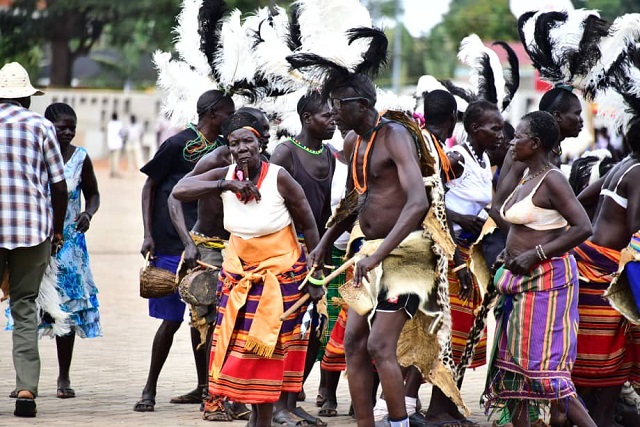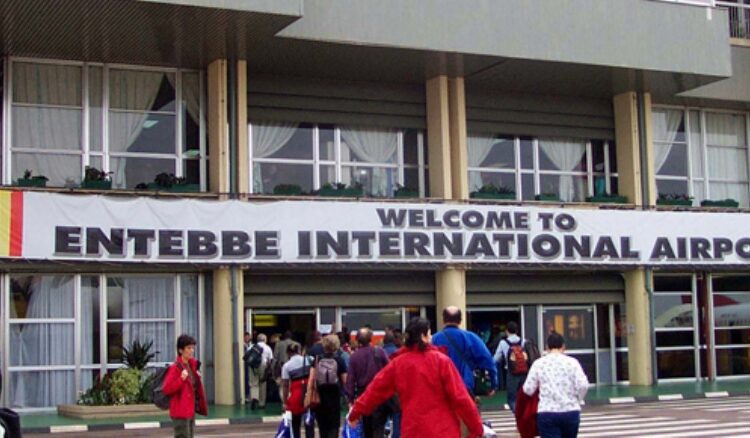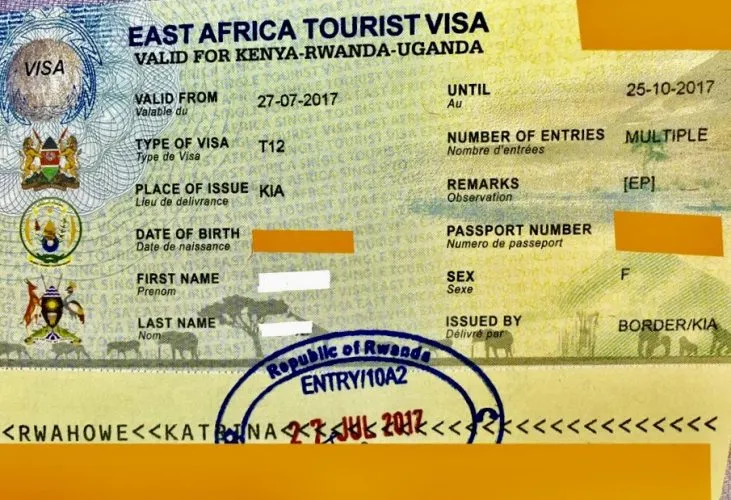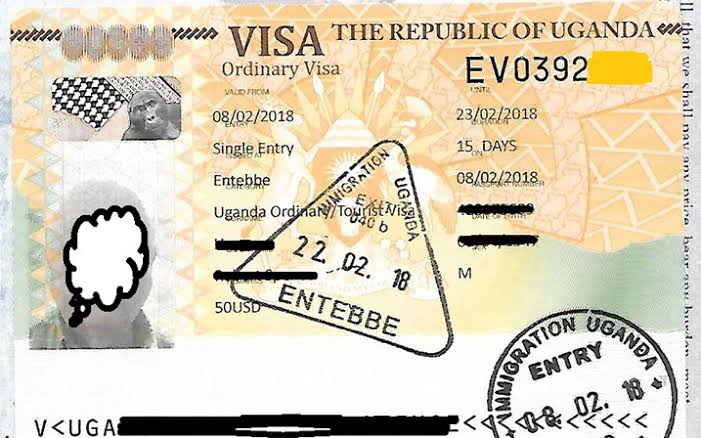
Visiting the Uganda Museum in Kampala | Experiya Tour Company
October 29, 2025
Do I Need a Visa to Enter Uganda | Experiya Tour Company
October 29, 2025What Are the Most Interesting Cultural Festivals in Uganda?
Uganda, the Pearl of Africa, is a land of many faces — from its dazzling lakes and mountain ranges to its mosaic of over 50 ethnic groups, each with its own stories, music, and traditions. This incredible cultural diversity means that throughout the year, Uganda bursts with festivals that bring people together to dance, sing, feast, and celebrate life. These festivals are more than events; they are a living reflection of Uganda’s identity — a vibrant mix of the ancient and the modern, where tradition meets creativity, and community spirit reigns supreme.
Whether you’re exploring the royal heritage of the kingdoms, joining modern art and music gatherings, or witnessing ancient ceremonies that have stood the test of time, Uganda’s cultural festivals offer an authentic window into the heart of the nation. Here are some of the most interesting cultural festivals in Uganda that every traveler should experience at least once in a lifetime.
The Kampala City Festival – The Capital’s Biggest Celebration
The Kampala City Festival is Uganda’s grandest street party and one of East Africa’s largest urban celebrations. Every year, Kampala transforms into a carnival of color, music, and dance as residents and visitors come together to celebrate the country’s creativity and progress. The festival, organized by the Kampala Capital City Authority, takes place in October and draws thousands of people from all walks of life.
For one day, the city’s main streets are closed to traffic and filled with cultural parades, art exhibitions, live music, and performances from schools, artists, and dance troupes. The air vibrates with the sounds of drums, whistles, and laughter. Food vendors line the streets selling traditional Ugandan dishes such as roasted maize, chapati, and rolex (a rolled chapati and egg snack), while local designers showcase African fashion that blends modern flair with cultural patterns.
The Kampala City Festival captures the essence of Uganda’s diversity — modern, youthful, and full of energy. For visitors, it’s the perfect opportunity to mingle with locals, sample Ugandan street food, and experience the infectious joy of Uganda’s capital city.
Nyege Nyege Festival – The Spirit of Music and Freedom
If there is one festival that has put Uganda on the global cultural map, it is the Nyege Nyege Festival. Held annually on the banks of the Nile River in Jinja, this four-day event is a dazzling celebration of African music, art, and freedom of expression. The name “Nyege Nyege” is derived from a Luganda phrase meaning “the irresistible urge to dance,” and the festival lives up to its name in every way.
The festival attracts musicians, DJs, and artists from across Africa and the world, offering a melting pot of sounds — from Afrobeat, reggae, and electronic music to traditional African rhythms. Stages are set up in the lush forests and riverside clearings, where thousands of revelers dance under the stars. Beyond music, the event includes art installations, workshops, food stalls, and craft markets, creating a complete cultural immersion.
Nyege Nyege is more than a party; it’s a celebration of diversity, creativity, and unity. It brings people together regardless of nationality or background, showing the world the beauty of Uganda’s open-hearted spirit.
The Imbalu Ceremony – A Rite of Passage in Eastern Uganda
Among Uganda’s traditional festivals, the Imbalu ceremony of the Bagisu (also known as the Bamasaba) people stands out as one of the most captivating cultural experiences. Celebrated every even-numbered year in the Mbale District on the slopes of Mount Elgon, Imbalu is a male circumcision ritual marking the transition from boyhood to manhood.
The ceremony is not a private event but a public festival that draws thousands of spectators. The celebrations begin weeks before the circumcision, with vibrant processions, singing, and drumming that echo through villages. Young initiates, painted with clay and adorned with traditional ornaments, dance in the streets accompanied by the fast-paced kadodi drums.
The festival symbolizes courage, unity, and cultural pride. For visitors, witnessing Imbalu offers a glimpse into one of Uganda’s most enduring traditions — a ritual that has been practiced for centuries and continues to define the identity of the Bagisu people.
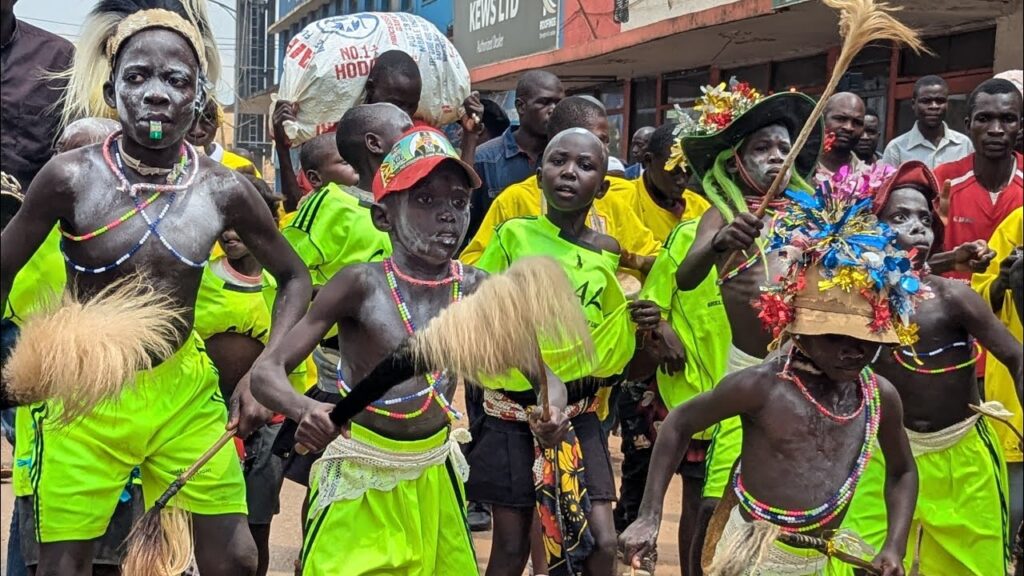
The Empango Festival – The Royal Celebration of Bunyoro
In western Uganda, the Empango Festival is one of the most important cultural events, celebrated by the Bunyoro-Kitara Kingdom. This annual festival commemorates the coronation anniversary of the Omukama (King) of Bunyoro. It’s a grand affair filled with pageantry, traditional drumming, dancing, and blessings.
Held at the royal palace in Hoima, Empango draws subjects from across the kingdom who gather to pay homage to their monarch. The celebration features the Runyege-Ntogoro dance, performed by men and women dressed in colorful traditional attire. Musicians play local instruments such as the endongo (bow harp) and amakondere (trumpets made of gourds), creating a rhythmic atmosphere that captivates everyone present.
For travelers, attending the Empango Festival offers a rare opportunity to experience Uganda’s royal heritage firsthand and to witness how the country’s traditional kingdoms continue to preserve their cultural pride in the modern era.
Bayimba International Festival of the Arts – Where Creativity Thrives
Art and culture lovers should not miss the Bayimba International Festival of the Arts, one of Uganda’s most celebrated creative gatherings. Since its founding in 2008, Bayimba has become a hub for artists, musicians, dancers, and filmmakers across Africa. Originally hosted at the National Theatre in Kampala, it is now held on Lunkulu Island near Lake Victoria — a beautiful and serene setting that complements the festival’s artistic spirit.
Bayimba is a multi-disciplinary event that celebrates all forms of creativity, from music and film to photography, theatre, and fashion. Visitors can attend workshops, art exhibitions, film screenings, and open-air concerts that showcase both established and emerging African talent.
What makes Bayimba special is its commitment to cultural exchange. It brings together local communities and international visitors in a shared celebration of African creativity. The festival is a vibrant testament to Uganda’s growing arts scene and a powerful reminder of how culture continues to evolve while staying true to its roots.
Ekyooto International Cultural Festival – A Fire of Heritage
The Ekyooto International Cultural Festival, whose name means “fireplace” in Runyankole, is one of Uganda’s newest yet most captivating celebrations of heritage. In Ugandan culture, the fireplace is a sacred place where families gather to share stories, wisdom, and traditions. This festival embodies that idea by bringing together people from different regions and countries to share their cultural expressions.
Held in Kampala, the festival features traditional music, dance, storytelling, crafts, fashion, and cuisine from across Uganda and East Africa. Visitors can learn how to prepare traditional dishes, participate in dance workshops, and enjoy performances by cultural troupes representing Uganda’s ethnic groups.
Ekyooto promotes cultural understanding, unity, and tourism while reminding Ugandans of the importance of preserving their traditions in a rapidly changing world.
The Acholi Cultural Festival – A Celebration of Northern Identity
In northern Uganda, the Acholi Cultural Festival in Gulu has become a vital platform for preserving and celebrating the heritage of the Acholi people. The festival showcases Acholi traditions through music, poetry, dance, and storytelling, with performances of the iconic Larakaraka and Bwola dances that symbolize love, community, and strength.
The festival also serves as a forum for cultural education and peacebuilding. After years of hardship during Uganda’s civil conflicts, the Acholi community uses this event to celebrate resilience, unity, and hope. Visitors can enjoy Acholi cuisine, crafts, and traditional music while learning about the values and history that define this proud community.
The Rolex Festival – Uganda’s Delicious Street Food Celebration
Uganda’s love for food takes center stage at the Rolex Festival, a celebration dedicated to the country’s favorite street snack — the rolex, a rolled chapati stuffed with eggs, vegetables, and sometimes meat. The festival, held in Kampala, has become a cultural phenomenon, showcasing Uganda’s culinary creativity and youthful spirit.
During the event, chefs and vendors compete to create unique variations of the rolex, from spicy versions to vegetarian and gourmet twists. The festival also features music, dance, and food competitions, creating a lively environment filled with laughter and delicious aromas.
For travelers, it’s the perfect way to experience Uganda’s street culture and enjoy one of the tastiest local treats while mingling with locals in a fun, casual atmosphere.
Why Uganda’s Festivals Matter
Uganda’s festivals are more than entertainment — they are living expressions of identity, unity, and pride. Each celebration, whether it honors a king, an ancient tradition, or modern creativity, reflects the resilience and optimism of the Ugandan people. These festivals preserve cultural knowledge, strengthen communities, and promote peace in a country celebrated for its diversity.
For travelers, attending a Ugandan festival is one of the most rewarding experiences imaginable. It’s a chance to see the country not through guidebooks but through the laughter, rhythm, and color of its people.
Why You Should Travel With Experiya Tour Company
If you want to experience Uganda’s festivals in the most authentic and meaningful way, Experiya Tour Company is your perfect travel partner. Experiya specializes in cultural and adventure tours that immerse travelers in Uganda’s traditions, art, and way of life.
With Experiya, you can attend major cultural events like the Imbalu ceremony, Bayimba Festival, or Empango celebrations while enjoying personalized itineraries, expert local guides, and seamless logistics. Their guides will help you understand the cultural significance behind every performance and ritual, ensuring your journey is as enlightening as it is enjoyable.
Experiya’s mission is to connect travelers with the heart of Uganda — its people. They go beyond sightseeing, offering experiences that inspire connection, respect, and appreciation for local culture.
Book your next Ugandan adventure with Experiya Tour Company and discover the country through its festivals — where heritage meets happiness, and every beat of the drum tells the story of a nation alive with color, spirit, and pride.

